#modern day moses
Explore tagged Tumblr posts
Text
Ruddy Turnstone Prophecy And Symbolism
The Following Channel is from higher powers, Divine, the ancestral plane and is prophetic through Quornesha S. Lemon|
Whether the Ruddy Turnstone appears in dreams, visions, waking life or synchronicities, it is a sign and message that the tables have turned. If you've been uplifting others for years and supporting them, it is Now your turn to be supported. This isn't by force but by grace.
So, if you've supported folks over the years and they suddenly have abandoned you there's a price they will pay and you don't even have to worry about getting even. Karma is the best avenger. You've been hidden for years and have had some ups and downs, now it's your season to take off like you've always been meaning to.
Where you were once spinning your wheels, blessings and Godly success will take place. Gone are the days where you support or give to others without receiving anything in return. Your days of toiling are over. The divine has seen and heard all the good things you have done and without stings attached. You have had some good days and a lot of bad ones but your season of good is upon you. The divine says, he has special abundance and inheritance for you. The righteous will never be forsaken. This is not in a religious context but it spiritual.
You are a divine being and you always think of others before you have thought of yourself. But victory is yours. Consistent flow of money is activated upon you. There will be land and real estate transfers to you. You will still not be selfish in this season because it's not in your spirit to do so. You will have and be generous in whatsoever your heard guides you to give. Don't feel guilty for the success that is to come. Just thank divine. Your team of guides are very proud of you.This is the year, this is the day, this is the time that your destiny helpers are flooding in.
You are delivered from vows, oaths, pacts and curses of poverty. You have shown that you are worthy of what is to come. You have shown a great deal of responsibility not only for your destiny but that of others. You have cared even when you were questioned. Your social status is about to change. You will go from very little activity to full blown open support. You've seen an inkling of it before. But your anointing will compel others because divine has commanded it. So therefore those who are your destiny helpers must obey their assignment. Divine will and has delivered you. Testify. Your ancestors are with you. And they rejoice. Your angels are with you. Give thanks to all. Your orishas stand behind you ready to wage war on anyone, any thing and any being that will dare disrupt this attunement. Your enemies will know the firey vengeance of Divine. This is your exodus season. You have high powers. Huge blessings that will fight on your behalf.
Now your enemies have to work even harder to get to you. And your healing abilities, God/Divine has given you abilities to eradicate cancer, tumors, wars, negativity, you will know if I'm talking about you because you will feel chills in your bones. Many are called but few are chosen. Get ready for an overflow season of blessings and prayers being answered. Watch God/Divine/Creator of the universe do what he said he will do. You will be like you're on wings of an eagle. Flying, soaring and doing the will of the most high. So be it. The Ruddy Turnstone symbolizes that you are able to turn situations around, not only for yourself but for others. And this itself is no easy task. People will feel of you and hear of you. It also symbolizes power, prosperity, real estate, respect, love, compassion, happiness, predictions, prophecy and blessings.
This message isn't, obviously resonant with all whose paths it crosses, as perhaps you may encounter someone of this vernacular, mastery or skill. Therefore, it is a sign from the universe that you're meant to work with such a person.
Need further clarity or your own queries answered? Book your own reading as my schedule is full and I do not guarantee a reply on social media regarding this post.
If this is not you, then it is time to get clear to rejoin your tribe or the rest of the world of infinite beings. It's time to bring your light to the forefront. However, if you aren't able to invoke, heal or otherwise on your own, call on the assistance of shamans, healers, intuitive people, etc. to assist you. This synchronicity can possibly have specific meanings for you, it's time to get insight.
The Gift that Quornesha Has can never be duplicated, She is a Shaman, Writer, Healer, And Teacher with incredible prophetic/healing gifts. Please do not infringe upon her rights as the author. You are not permitted to reuse, nor are you to sale as you wish. This information has been made available to you for the purpose of introduction and demonstration. All rights reserved. If you'd like to use this in a magazine, online publication, or other, please ask for permission first. Legal actions will be taken if you proceed to impose. Be blessed, bless others and be at peace on your journey. What you do is coming back on you. Make sure that it is good, and all is well within you, through you and around you. The source sees all and knows what you think it does not.
#ruddy turnstone#ruddy turnstone bird#birds#bird#totems#spiritual totems#totem ruddy turnstone#enemies#anointing#blessing#modern day moses#healing#metaphysical healing#metaphysics#quornesha#sacred spirits
2 notes
·
View notes
Text
.
#EDIT: moved organizational tags up so they actually work#rosie rambles#in the tags#hellscape in palestine#thinking about the whole. yknow. war crime situation in palestine#and it might just be my brain connecting unconnected dots#but wasn't there something going around a while back about how to pronounce gaza and palestine#(bc europeans/americans/whoever are claiming palestinians can't even pronounce 'palestine' correctly#except they're calling the localized 'palestine' the 'correct' pronunciation which is. so incredibly wrong)#bc it's been rattling around in my head for a while now. it's more of a falasteen than a pal-ah-stein. falasteen. philistine.#PHILISTINE. AS IN. THE FUCKING. PEOPLE WHO LIVED THERE ALREADY BY THE TIME MOSES AND THE ISRAELITES SHOWED UP.#THERE WAS AN ENTIRE SUNDAY-SCHOOL-FAVORITE STORY IN THERE ABOUT IT#VEGGIETALES MADE AN ADAPTATION OF ONE OF THE FIGHTS#look. i am very much way too goy and way too sleepy to consider myself an authority on any of this.#but palestinians were (seemingly) there first.#then israel (the original nation not the reconstruction we have nowadays) dropped in and was there for a good long while.#then other nations conquered and un-conquered and conquered some more for a while#then modern israel came into being. and like. ok. i'm Christian. this is a known fact abt me. but i'm pretty sure our holy book told us we#won't know the day or the hour of the end of days. and yet there's this push to send Good Jewish People back to israel that's spesrheaded#by…alleged Christians. who believe that jewish people need to return to israel to signal the end of days.#which. again. won't be predictable.#idk where i'm going with this#i just. i think i'm just getting way too jaded from hearing people irl cheerfully support genocide and being unable to convince them#that it's Fucking Genocide. or in one specific case#that it's Fucking Genocide. And That Is BAD#i think i just needed to straighten out my thoughts a bit before i go to sleep#just. if we were going to just look at the ancient past. both nations have existed in that plot of land. and peace would be nice.#however.#it is Very Clear that one side's definition of 'peace' is 'peace and quiet. because the Others are all dead :)' which is. Not Great!#augh.
6 notes
·
View notes
Text
Joseph Smith Greater Than Isaiah or Moses? An LDS Perspective on Prophets and Doctrine
The claim that Latter-day Saints see Joseph Smith as greater than Isaiah or Moses is both provocative and misleading. Critics often present this statement as evidence of misplaced devotion, framing it as a rejection of Biblical authority. But anyone familiar with Latter-day Saint teachings knows that such a comparison misrepresents their view of prophets. Honestly. Do you really believe Smith is…
#and Joseph Smith: A Latter-day Saint perspective#Are Joseph Smith’s teachings greater than the Bible?#Biblical and modern prophets in LDS faith#Biblical prophets in Latter-day Saint belief#Biblical prophets in the Restoration#Book of Mormon teachings about Isaiah#Comparison between Joseph Smith and biblical prophets#Debunking myths about Latter-day Saint beliefs#Debunking myths about LDS prophet worship#Differences between ancient and modern prophets#Do Latter-day Saints ignore Old Testament prophets?#Do Latter-day Saints revere Jesus Christ?#Do Latter-day Saints worship Joseph Smith?#Does the LDS Church study the Old Testament?#Explaining LDS beliefs about prophets and apostles#Fallacies about Latter-day Saints beliefs#How does the Book of Mormon use Isaiah’s writings?#How Joseph Smith restored ancient principles#How Latter-day Saints honor Jesus Christ#How Latter-day Saints interpret Isaiah’s prophecies#How Latter-day Saints study the writings of Isaiah#How LDS Church views Isaiah and his prophecies#How LDS scriptures honor ancient prophets#How LDS scriptures reference Isaiah’s teachings#Is Jesus central in the LDS Church?#Is Joseph Smith greater than Isaiah in Mormonism?#Is Joseph Smith greater than Moses?#Is Joseph Smith worshiped in the LDS Church?#Isaiah#Isaiah in the Book of Mormon
1 note
·
View note
Text
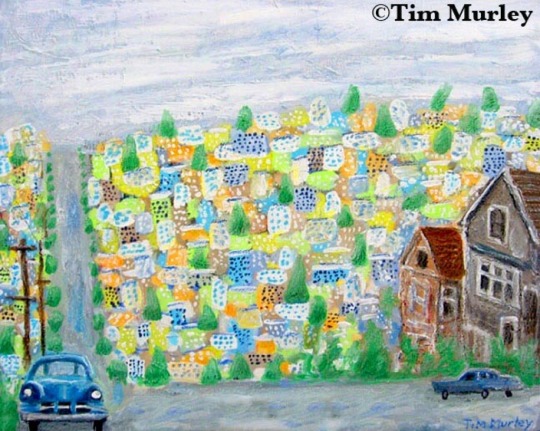
Foggy day over Noe valley. 🚙☁️(mixed media on canvas-commissions open)🌫☁️
#san francisco#san fransisco 49ers#san franciso bay#san fransisco lovers#sf#Noe valley#Castro#plein air#plein air painting#folk art#foggy#fog#foggy day#hills#steep hill#cityscape#cityscape painting#california landscape#california artist#California art#northern california#urban sketch#urban sketchers#urban landscape#urban sketching#san francisco ca#modern art#david hockney#grandma moses#art for sale
0 notes
Note
Atheist here asking questions about the Moses story, could g*d have found a better way of punishing the pharaoh then killing their children? I feel like there could have been better options?
Mostly I’m curious as to what the interpretation of that is.
well I'm an atheist as well so keep that in mind, but I have no idea.
the story is from thousands of years ago, and many stories from that era include bloodshed (in ways we in the modern world may consider unnecessary).
you have to keep in mind that this punishment was the last one of 10, after 9 other plagues to pressure the pharaoh to release the Israelites. those were: turning the river to blood, a bunch of fucking frogs everywhere (or a giant frog, jumblr had a debate about it), lice, invasion of wild animals, a disease on their livestock, scabies, hail, locusts, and total darkness for three days.
Moses went to Pharaoh after every plague, but he didn't budge until the last one, the death of the firstborns in eygypt. and even after he agreed, he changed his mind and sent his army after the escaping Israelites (which lead to the miracle of the parted sea).
that was not Moses's decision to kill the firstborns, the Israelites didn't cheer for their deaths, and we don't celebrate it. I'd like to remind the audience at home of the start of the story, where the Israelites where slaves to the Egyptians, and the (previous) Pharaoh passed a law to throw every male baby to the nile river, that was a human decision enforced by humans.
many other cultures have their fair share stories of bloodshed being presented as good or even heroic, Judaism shouldn't be expected to be an outlier when it's one of the more ancient religions. not to mention the 10 plagues were never really presented as positive in my opinion, they were a necessary evil to free them from slavery.
thanks for the ask! i hope my answer makes sense. again I'm not religious so I may have gotten some things wrong.
457 notes
·
View notes
Text
thinking about sandman s1 and the totally unhinged vibes decision that was panning to the threshold of desire after dream and hob finally met up in the modern day. and the song choice for that shot (“desire” by bob moses/zhu. i see you, electro club vibes with sexy lyrics. really. a choice).
thinking about the equivalent of this if they had done similar in dbda what with edwin’s confession to charles. especially given charles picking the lock on the door to lust and edwin almost getting dragged down in there.
or maybe it happens after the episode 8 hug, the one where they crashed together like inseparable magnets, and edwin stumbled away in a daze, and their touch lingered, and charles’ hand went to his heart to mirror how edwin’s had when he realized his feelings.
now we pan to desire, who must be having a field day with both edwin and charles, to be honest. and i wonder what the totally unhinged song choice would have been for the two of them.
78 notes
·
View notes
Text
Wolfstar wip recs! Works in progress are such a big part of fandom, and I need to be better about reading and recommending them. I'm open to suggestions as well!
***If you're reading any, also give the author love if you at all can, I'm trying to be better about that too***
My current ones I can find in notes:
•The Ups and Downs of Inevitability by depressed_and_nauseous: Hogwarts au (no background relationship rn)
•maybe time running out is a gift by @messrsrarchives mcd, Remus with cancer decision to stop treatment (background jily)
•catch me on the way down by raggedypond mcd fic, reg is dying and Sirius has to make end of life decisions, meets Remus at hospital
•Black's Anatomy by @grasslesss greys anatomy au
•beautiful boy (beautiful boy au) and we grew up in spite of it (Remus has a twin at Hogwarts divergent mcd) by peachyybabe @lavenderhaze
•Tender is the touch (of someone that you love too much) by @purplefiction-ao3 remus is waiting for heart transplant (background jily)
•Would That I by third_crow Hogwarts soulmate au (background jegulus)
•Underneath It All by @kaymardsa texting au (background jily)
•Without You by beautywolfstar @daffodilsonaprettystring Titanic au (background jegulus)
•Let Me Believe (Ever After) by @brigidfaye ever after: a Cinderella story au (jegulily)
•Modern Day Moses by krabapple @severedreamerfox post 1st war divergent mpreg (background jily)
•Tic Tic Boom by @fictionboysarebetter Remus with tourettes at Hogwarts (background jily)
•The Standard Book Of Spells series by imparfait @je-suis-imparfait adorable wolfstar, hurt/comfort, no voldy au (the most recent is complete but series is wip and one of my faves) (background jily)
•While I breathe, I hope by @marigold-hills divergent post Hogwarts, remus expelled after prank
•One More to Love by @krethes @theresthesnitch a/b/o Wolfstarbucks
•Give Me A Sign by @theresthesnitch magical soulmate au, Remus is deaf (background jily)
•Blinded Fate by FatedEcho star wars au (background jily)
•amicus curiae by femme_de_lettres @femme--de--lettres law school au fantastic disability rep (background jegulus)
•Parenthood For Dummies by Middleofamoment wolfstar raising teddy and adopting OC (part of series) (background jily)
•The Point of Vanishing by @greenibis (59k) fabulous look at the boys at Hogwarts. (background jily)
•Coparenting With Benefits by @m00neroni (38k wip 6/22 chapters) a/b/o mpreg fwb (background jily)
•As the Worm Moon Dies by @rollercoasterwords different magical system very au
•on another ocean by @colgatebluemintygel (133k WIP ) modern au, vacation, pining and oblivious idiots in love. (background jily)
•Vaincre by @lumosinlove sweater weather sequel (hockey) (background jily)
•Four To The End by @dovahtobi long fic of Hogwarts. This is year 4 (96k, 19/? ch.)
•Language Lessons: B-Sides by MsAlexWP @languagelessonswolfstar (background jily)
•disintegration by moonymoment @mayescapade vampire Sirius and Hunter remus
•wip or maybe abandoned but good: Of Leaves and Stars (modern magical texting, trans remus and genderfluid sirius)
•Of Initials and Postscripts same authors and status (Hogwarts era, remus is homeschooled and sirius is his penpal) both by irrationalmoony & LadyAmina
•hide your fires by bizarrestars @starsworth (reg/Kingsley main, plenty of black family dynamics, harry and wolfstar)
---And these are what's coming on wip tbr/recs from my lovely friends
•marginalia by @spindrifters magical au
• of his bones by MesserMoon
•A Love Like the Movies by Acewitch @acewitch-writes
•How To Jeopardise Your Friendship With Remus Lupin by @amberlink
71 notes
·
View notes
Text
Note to anti-Zionists: You cannot celebrate Passover
Sorry to be the bearer of bad news, but despite the fact that you think "Zionism is not Judaism", when you celebrate Passover, you're strengthening Jewish ties to the Land of Israel. And you don't want to do that! It's a problem for anti-Zionists. If you deny Jewish history, culture and religion - how can you then celebrate Jewish holidays?
On Passover we celebrate how God took Israel out of Egypt and freed them from slavery. Why? God talks about it several times. In Bereshit He tells Abraham He will bring the Israelites to Egypt and back again (Bereishit 17). Abraham was in Hebron when God said that He will bring Abraham's descendants back "here"
And He said unto Abram: 'Know of a surety that thy seed shall be a stranger in a land that is not theirs, and shall serve them; and they shall afflict them four hundred years and also that nation, whom they shall serve, will I judge; and afterward shall they come out with great substance… And in the fourth generation they shall come back hither
In that day the LORD made a covenant with Abram, saying: 'Unto thy seed have I given this land, from the river of Egypt unto the great river, the river Euphrates; the Kenite, and the Kenizzite, and the Kadmonite, and the Hittite, and the Perizzite, and the Rephaim, and the Amorite, and the Canaanite, and the Girgashite, and the Jebusite.
When it's time to free the Israelites, God appears to Moshe in the burning bush (Shemot 3):
And when the LORD saw that he turned aside to see, God called unto him out of the midst of the bush, and said: 'Moses, Moses.' And he said: 'Here am I.' … And the LORD said: 'I have surely seen the affliction of My people that are in Egypt, and have heard their cry by reason of their taskmasters; for I know their pains; and I am come down to deliver them out of the hand of the Egyptians, and to bring them up out of that land unto a good land and a large, unto a land flowing with milk and honey; unto the place of the Canaanite, and the Hittite, and the Amorite, and the Perizzite, and the Hivite, and the Jebusite. And now, behold, the cry of the children of Israel is come unto Me; moreover I have seen the oppression wherewith the Egyptians oppress them. Come now therefore, and I will send thee unto Pharaoh, that thou mayest bring forth My people the children of Israel out of Egypt.'
God couldn't be more explicit. If you celebrate Israel coming out of Egypt, you've obviously also celebrating them going back to the Land of Israel. This means you can't talk about Jews being colonialists and Arabs being indigenous since they conquered the area 1400 years ago. Now let's look at the Haggada. The Haggada was, of course, written in the Land of Israel.
Let's just list a few more things that will be problematic for your average anti-Zionist:
Once, Rabbi Eliezer and Rabbi Yehoshua and Rabbi Elazar ben Azaria and Rabbi Akiva and Rabbi Tarfon reclined [for the seder] in Benei Brak.
The ancient site of Benei Brak is in the Tel Aviv region, right by the modern Mesubim Interchange. In fact, it's called mesubim after this story. "reclined" in Hebrew is "mesubim"

In "Magid" we look over our history. Remember when God told Abraham to come to the Land of Israel?
IN THE BEGINNING, our ancestors were idol worshippers. BUT NOW the Omnipresent has drawn us close in His service; as it is said: “Joshua said to all the people, ‘This is what the LORD God of Israel has said: Beyond the river your ancestors always dwelled – Terah the father of Abraham, the father of Nahor – and they served other gods. But I took your father Abraham from beyond the river, and I led him all the way across the land of Canaan
In "Dayenu" we praise God for bringing us back to the Land of Israel and building a Temple in Jerusalem.
HOW MANY AND MANIFOLD THEN, THE OMNIPRESENT’S KINDNESSES ARE TO US – for He brought us out of Egypt …. and He brought us to the land of Israel and built for us the House He chose, SO WE COULD FIND ATONEMENT [THERE] FOR ALL OUR SINS.
We mention three things we have to have on Passover, and once again we mention the Temple in Jerusalem.
Rabban Gamliel would say: Anyone who does not say these three things on Pesaḥ has not fulfilled his obligation, and these are they: PESAḤ, MATZA, AND BITTER HERBS. The PESAḤ is what our ancestors would eat while the Temple stood
Every Jew should see himself as if he was redeemed from Egypt and brought to Israel. EVERY JEW.
GENERATION BY GENERATION, each person must see himself as if he himself had come out of Egypt, as it is said: “And you shall tell your child on that day, ‘Because of this the LORD acted for me when I came out of Egypt.’” It was not only our ancestors whom the Holy One redeemed; He redeemed us too along with them, as it is said: “He took us out of there, to bring us to the land He promised our ancestors and to give it to us.”
In the Hallel, we say Psalms, and as anti-Zionists know - that is a book of Tanach that you must never ever open
And then we bless the wine and ask God to rebuild the Temple in YOUR CITY. That's right, anti-Zionists - according to Judaism: The Land of Israel is God's Land Jerusalem is God's City And the Temple is God's house
This why we call the Temple Mount "Har Bayait". The Mountain of the House. That is, the Mountain of God's House. If you disagree, you might want to choose a faith that sees God's City elsewhere. In Rome or Mecca (or maybe even New York!) Since they support colonialism and renaming indigenous holy places - Anti-Zionists today call it Al-Aqsa, after the mosque that was built on Judaism's most holy site 1400 years ago.
Blessed are You, LORD our God, King of the Universe, who has redeemed us and redeemed our ancestors from Egypt, and brought us to this night to eat matza and bitter herbs. So may the LORD our God bring us in peace to other seasons and festivals that are coming to us, happy in the building of Your city and rejoicing in Your service; and there we shall eat of sacrifices and Pesaḥ offerings
In Korech, we talk about Hillel, one of Israel's greatest rabbis - who lived in the Land of Israel
In memory of the Temple, in the tradition of Hillel. This is what Hillel would do when the Temple still stood
In Birkat Hamazon we bless God for bringing the Jews back to Israel and ask Him to rebuild the Temple. I will not repeat it here, but let's just say that if you're anti-Zionist, you should never ever say Birkat Hamazon.
And finally, when the Haggadah is over, we ask God to bring us back to Jerusalem (AKA Zion).
The Pesaḥ service is finished, as it was meant to be performed, in accordance with all its rules and laws. Just as we have been privileged to lay out its order, so may we be privileged to perform it [in the Temple]. Pure One, dwelling in Your heaven, raise up this people, too abundant to be counted. Soon, lead the shoots of [Israel’s] stock, redeemed, into Zion with great joy. NEXT YEAR IN JERUSALEM REBUILT
39 notes
·
View notes
Text
So you want to learn more about Judaism, part 1: The Complete Beginner's Guide to Judaism
This is a series about judaism for those who want to learn more about it. It also covers Judaism-adjacent topics, like antisemitism, Israel, and Jewish history/culture/etc.
But first, you should probably know the basics of Judaism. I'm assuming you know nothing about us, or have realized that what you do know is wrong. This is a bit oversimplified, but should be reasonable enough.
What does it mean when someone says, "I'm Jewish"?
It can mean a lot of things, but it generally means one or both of the following:
I follow Judaism as a religion
I am ethnically Jewish
Let's dig into each of these.
The religion
Judaism is a religion. It arose over 3,000 years ago in the region roughly corresponding to the modern-day countries and regions of Israel, Palestine, southern Syria and Lebanon, and western Jordan.
It is monotheistic, which means it worships one god. Its holy text is the Five Books of Moses, or Torah. It does not believe in the divinity of Jesus. If you see someone claiming you can be religiously Jewish and believe Jesus was the Messiah, son of God, or divine, they are wrong.
Judaism has many requirements (613 in the Torah alone!). Some of them are more famous, like not eating pork, not mixing milk and meat, resting on the Sabbath (for Jews, sundown on Friday to sundown on Saturday), et cetera. Some of them are less famous, often because they aren't able to be done.
You see, many of Judaism's rules presume a temple in Jerusalem. There was, once, a temple in Jerusalem; it got destroyed and Jews were exiled. Then we came back and built it again. It got destroyed again by the Romans in 70 CE, as part of a campaign to destroy us[1]. Only a small part of it, the Western Wall, the holiest still-standing site in Judaism, survives to this day; the rest of it is underneath the Al-Aqsa Mosque.
Judaism has many different denominations. The big ones are:
Hasidic: These people try to follow all of the rules, and then some. They follow many different rebbes, or leaders, and were hit very hard in the Holocaust due to being heavily concentrated in Eastern Europe. They are most of the speakers of Yiddish today. They can be very isolated from the outside world, but many of them aren't.
Orthodox: More lenient and open to the outside world than Hasidic Jews generally are, Orthodox Jews range from Hasidic to Open Orthodox, who ordain women and do other no-nos in traditional Orthodoxy.
Conservative: Conservative Jews occupy an intermediate position. They generally follow the rules as laid out, but are more flexible with them. So while a Reform family might drive on Shabbat, and an Orthodox family might not, a Conservative family might only drive to get to shul (temple, religious building) if they live far away from one.
Reform: Reform Jews are very flexible with the rules of Judaism, in a good way. They're very permissive of queer things. (Disclosure: I'm Reform.)
There are many smaller groups, like Ethiopian Jews, who have unique traditions stemming in part from long isolation from the rest of the world's Jewry; Karaite Jews, who reject the Talmud, which interpreted and expanded on Jewish law; and Humanistic Jews, who don't ever explicitly say there's a God.
Ethnic Judaism
Judaism is also an ethnicity. Well, several. With the exception of a few small communities, all are clearly from the Middle East genetically, but they do have differences, including in terms of customs. Since Jews have spread all over, there are a lot of divisions, but the big ones are:
Mizrahim: These Jews never left the Middle East. Formerly they were all over the Middle East, but after the foundation of the State of Israel, they were persecuted out of their homes, and most now live in Israel.
Sephardim: Sephardic Jews were originally from the Iberian Peninsula, but, due to the Spanish Inquisition (and its Portuguese cousin), most lived in the Middle East, North Africa, and southern Europe for hundreds of years. In the case of the former two, after the founding of the State of Israel, they were persecuted out and fled to Israel. In the case of the latter, they generally died in the Holocaust.
Ashkenazim, or Jews from Eastern and Central Europe. The vast majority of American Jews, a minority of Israeli Jews. Most Hasidim are Ashkenazi. Most of the Jewish Holocaust victims were Ashkenazi, and so today the major centers of Ashkenazi populations are the US and to a lesser extent Israel. It used to be Eastern Europe, though. (Poland alone had 3 million Jews, although it managed to kill 90 percent of them and make something like 99 percent of the survivors flee, then deny any wrongdoing.)
There are lots of smaller ones too, like the:
Mountain Jews and Georgian Jews: Two distinct Jewish communities nestled in the Caucasus who seem to have been in the diaspora since some number of centuries BCE, well before most other diaspora populations.
Persian Jews: Similarly long diaspora history. A surprisingly large population remains in Iran.
Yemenite Jews: Distinct in ritual from other communities of Jews, they have by now mostly fled Yemen.
Ethiopian Jews: Highly distinct from other Jewish groups, they lived in almost total isolation from the broader Jewish world for over a thousand years. Their traditional religious practice doesn't follow the Talmud, as most other ones do, meaning they seemingly codified their own set of Jewish law. Early observers from more integrated Jewish communities noted that they observed customs that had long since died out in the broader Jewish world. Most of them now live in Israel.
A few seperate communities of Jews in modern-day India, now mostly in Israel
Many more[2]
[1] The genocide (it was a genocide) included expelling us, distributing us as slaves, killing us, and erasing our traditional name for the region (Yisrael) to try to erase our connection to the region. They called the region Palestina.
[2] Seriously, if it's a country in Africa or Eurasia, odds are there is/was a Jewish community in it, often with distinct traditions/origins.
58 notes
·
View notes
Text
Brandt's Cormorants Prophecy And Symbolism
The Following Channel is from higher powers, Divine, the ancestral plane and is prophetic through Quornesha S. Lemon|
Whether the Brandts Cormorants appears in dreams, visions, waking life, or synchronicities, it is a sign and message that sometimes, people, negative people come into your life thinking they’re here to destroy you. And because of their long line of tormenting history, the jig is up. Your anointing has put heaven on notice. So. every negative thing that has been weighing you down will now go with them.
Because of what they did to you. justice for everyone before you that they put their mouth and hands towards, is coming against them. Including what they thought they did to you. Until they do what they said they were going to do, and even if you don't want it. Trouble will follow them. You're coming into a season where everything that comes against you will transmute into success, prosperity, blessings, and joy. You are not to worry about how you will eat, what you will wear, where you will live, what you will drive.
Updates to your income and living arrangements, as well as your family life, are coming. Good things can and will happen to you. Pay close attention to the words you allow into your atmosphere. Brandt’s Cormorants is a sign and prophecy that you are about to be lifted up. If there’s an idea or goal that you’ve been longing to achieve, it will manifest now. The Brandt’s Cormorant is a reminder that even though something or someone has left your life, the best is still yet to come. Whatever is ending, just allow it. As It is meant to end. You will experience relief from the storms and pressures of life. Get ready, big things are
This message isn't, obviously resonant with all whose paths it crosses, as perhaps you may encounter someone of this vernacular, mastery or skill. Therefore, it is a sign from the universe that you're meant to work with such a person.
Need further clarity or your own queries answered? Book your own reading as my schedule is full and I do not guarantee a reply on social media regarding this post.
If this is not you, then it is time to get clear to rejoin your tribe or the rest of the world of infinite beings. It's time to bring your light to the forefront. However, if you aren't able to invoke, heal or otherwise on your own, call on the assistance of shamans, healers, intuitive people, etc. to assist you. This synchronicity can possibly have specific meanings for you, it's time to get insight.
The Gift that Quornesha Has can never be duplicated, She is a Shaman, Writer, Healer, And Teacher with incredible prophetic/healing gifts. Please do not infringe upon her rights as the author. You are not permitted to reuse, nor are you to sale as you wish. This information has been made available to you for the purpose of introduction and demonstration. All rights reserved. If you'd like to use this in a magazine, online publication, or other, please ask for permission first. Legal actions will be taken if you proceed to impose. Be blessed, bless others and be at peace on your journey. What you do is coming back on you. Make sure that it is good, and all is well within you, through you and around you. The source sees all and knows what you think it does not. Image credit: Wikipedia
#brandt's cormorants#channel#spiritual#prophecy#prophet#money#manifestation time#dreams and visions#priestess#mystic#moses#modern day moses#go down moses#shamanism#shaman#shamanic medicine
1 note
·
View note
Text
The Unwinding (Draco Malfoy x Reader)
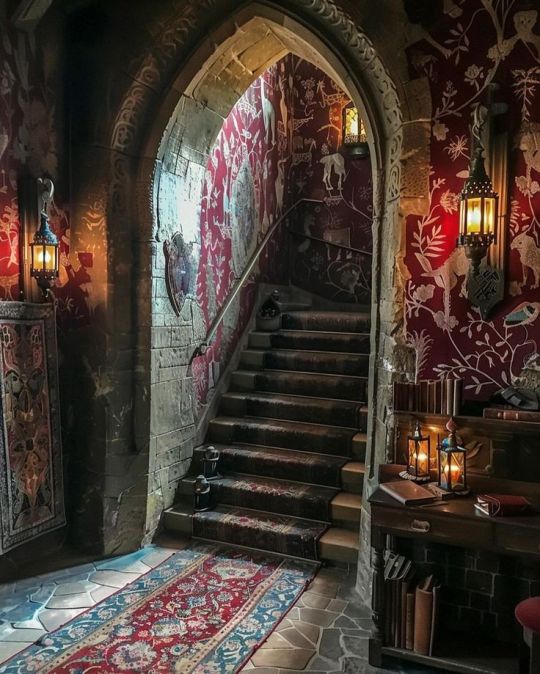

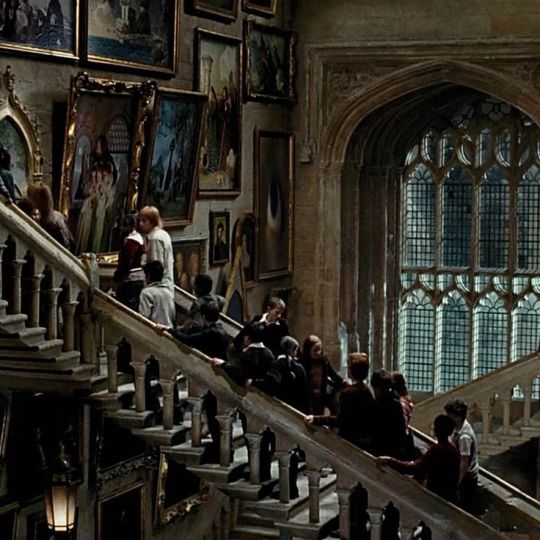
Chapter One: Neapolitan Sweetbread
Rated: Mature
Word Count: 4.1k
Summary: Running late to your very first day of a Divination class is an entire feat in itself, but so is coming to terms with the fact that the infamous Draco Malfoy is your new desk partner. (See the overarching summary for the future of this fic, here.)
Warnings: Language
A stampede of students is, more or less, the exact opposite of what you need right now.
Your shoulders face collisions head-on, with backpacks and bodies coming at you from nearly every angle. The ocean-esque ebb and flow of the hallway is not particularly unfamiliar; however, when in such a hurry as you are, it picks at your sense of control like a ticking time bomb. And, if you had none, your nerves alone would clear this path in an instant. The wand tucked into the inner pocket of your robe is practically begging to do fuck-all damage.
“I hope she’ll still have me,” you say, rather than inflicting mass destruction, as you let the irritation contort into plain stress. The volume of your voice is watered down by the abundance of conversations, until only your immediate target can hear you.
“She told you just yesterday that she would. It couldn’t have changed in a single night.” A warm hand squeezes yours and holds you close behind. Marla Rinds, or a modern day Moses, parts students like the Red Sea, and her head of curls act as your personal guide. “Just relax.”
Okay, easier said than done, especially when you haven’t been able to breathe for the past week. You aren’t normally so tense, and even if you are, the stakes on the line only double it down. Accelerated Divination is in high demand among the upperclassmen, and it wasn’t until you realized that Quantum Astrological Theory wasn’t for you that you decided to reassess your schedule. It was a miracle that the professor even allowed you to enroll at this point in the term and, until you step foot in the classroom, you cannot will yourself to just relax. If this doesn’t work out, you can say goodbye to graduating on time- which, you’ve decided, is just not an option.
So, a staggering deadbolt to class it is. That very class, which is.. Merlin knows where. It’s a Monday, so the Eastern staircase should be the quickest route.. or is the Northern staircase? Shit, what time do they shift directions again? And, come to think of it, what time is it right now?
Never eat… soggy waffles…
In the stretch that it takes for you to wrap your head around which wing of the building you and Marla are even located, she is already one step ahead of the game. There’s a sort of peace that comes with having her in and within your grasp, with the knowledge that she’ll undoubtedly get you where you need to go.
Her head tilts around and peeks over the other bodies as she navigates the terrain and visibly sighs. She spots the predicament before you even get the chance. Against all odds, more students manage to file out of their classrooms and into the hallway, and you two are not the only ones eager to get to their destinations.
“Shoot.” A dejected huff leaves her for a second, then she raises her voice, “Does anyone have the time?”
Eyes of other students swirl around to land on you and Marla, but the glances are fleeting, and they inevitably return to their own ways. You can’t quite blame them when Marla’s plea drowns out and blends into the accumulation of noise entirely. It’s easy for even you to lose the meaning of her words.
Your pace is hindered even more so as Marla holds out hope for an answer. She squeezes your palm to ease the shared concern, though if it isn’t effective for you, you’re certain that it isn’t effective for her either. Every passerby student seems to move on from the question as quickly as it was asked, and when Marla starts to push forward and pick up stride again, a deep voice calls out from a few heads away.
“Eleven twenty-two,” a man says, speech disembodied until you lay eyes on him. He’s a portrait hung up along the wall, with scruffy red hair on his head and spotted down onto his chin. A traditional pocket watch is cradled in the base of his hand.
“Thank you!”
And you’re back in the race, now with a ferocity only sparked by a sudden anxiety. Marla hauls you further, littering apologies as she actually, physically pushes through and past students. This complete lack of punctuality is an entirely new world for her. Her own courses and extracurricular schedule has never faced such mistreatment, in all of the years you’ve known her, and probably in all of her life.
“Next time, I’m waking you up early,” she says.
Your feet find ground on the staircase before you even realize it– the Eastern staircase. Weaving through limbs and torsos, you and Marla dash upwards, disregarding athleticism until you reach the very top. And now, through heaves, you recognize the surroundings. The Divination classroom is only one or two more turns away, but the odds of arriving on time are utterly against your favor.
Still holding onto you, Marla takes the lead. You’re finally able to breathe again, now that these hallways are far less suffocating, but the lack of stimulation allows for pests such as thoughts to creep up on you.
“What if she’s in a foul mood and being late changes her mind?”
“Oh, please, she won’t change her mind.” Marla’s quick to, once again, reassure you, then pauses. She shrugs mid-pace. “And if she does, we’ll just hex her.”
“Amazing! Why didn’t I think of that first?”
“You need to trust the process sometimes, babe. Everything’s gonna be fine.”
Trust the process. Despite the tight knot that sits hard in your chest, you nearly laugh at her wits. The destination and target of your desires is a Divination course, yet you aren’t very sure as to whether Marla actually believes in fate or the all-knowing universe at all. As far as you know, she’s a self-proclaimed woman of science.
And fucking finally, you meet the classroom door like they’re pearly white gates. The air takes too long to replenish in your lungs, faltering you on the outside, whilst Marla doesn’t hesitate to breeze right through. Her breaths are effortlessly stable as her hand releases yours. With a devout apology for her tardiness, she heads straight for her seat at a small round table, shared with Cedric Diggory. Her pristine motions have you scrambling into the room after her, with flushed cheeks and a meek smile.
Professor Thyme stands at the front of the class, eyes and mind elsewhere until they fall on you. You brace yourself for impact, but she only smiles at your apologies. “No worries at all, dear.”
You’re too short of breath and warm-faced to care about how she introduces you to the rest of the class. And even when she instructs you to find your place in the one empty seat, the cogs don’t move. The mental registration is delayed about five seconds, but once you catch up, you sigh in relief– in victory! “Thank you so much.”
The high of success almost knocks you over as you turn to face the rest of the room. You’ve only been in here twice before, when in the process of begging for and obtaining a spot on the roster, but now you can see it in action. There’s no incense or mist that overwhelms the air nor your senses, but aromatic candles line up along the two side walls. They exude lavender.
A deep burgundy wall at the back has tall, glass-stained and kaleidoscopic windows, with sunlight that illuminates a vast way across the room. Long, colorful rays guide you toward the rest of the students that sit at their respective tables, two per piece. Visually honing in on the single vacant seat isn’t a difficult task. You hardly notice the carpet giving into the weight of your shoes as you hurriedly reach the empty spot and land your eyes on him– the notoriously familiar face of Draco Malfoy.
Your brain is doing the five second delay again. His mere presence stills you, leaning into the back of his seat with straight shoulders and a stone stare forward. It isn’t until he meets your eyes for only a moment, then looks away again with that fixed expression, that you shock the life back into your body and take a seat. You always knew he’d been attending the University, particularly from the way his name has remained on various students’ tongues, but you’ve never actually come across him throughout your time here. Not at quidditch games or house parties– not even in the Slytherin common room, or the dining hall. You’d never paid any attention to it before.
But now, here he is; a face you haven’t really seen since secondary school, sitting at a table with, naturally, the only available seat. To your relief, the little platform you share with Draco is right next to where Marla and Cedric are. Cedric leans over and flashes you a grin. His thumbs stick up as he mouths the words, “You made it!”
You return the gesture and give one last, soft breath. The triumph radiates through you despite the shock of the man at your side, and even the dampness of your forehead. Fuck, it’s amazing– to catch your breath, finally, and to shake this past week’s worry off. And when Thyme slips right into today’s lesson, you spring into action. This class has been ongoing for a few weeks already, so the focus now is imminent.
She stands just a yard or so in front of you. The bottom of her ankle-length skirt twirls as she waltzes around to the backside of her desk and claps her hands. “Oh, it’s splendid, isn’t it? An even number!”
Her finger traces a line through the air, from a stack of small boxes on her desk and to the mass of students. They rise up into a float and find their respective ways to a table. One lands right between you and Draco.
“For our next assignment, you will be working with your table partner.” Thyme’s feathery voice projects across the room, providing the class’ mysticity all on its own. “Together, you will delve deep into the intricate world and interpretations of Tarot!”
It’s simple enough, the way she explains it. And the concept of Tarot isn’t exactly new to you either, so you’re confident, even if it means that you may have to do most of the work. You don’t really know– you don’t know how into all of this stuff Draco might be, or how much he’s willing to engage at all. Maybe his desire for a good grade will override all of that anyway.
Any benefit of the doubts that you might’ve given him are overshadowed by his motionless stance when Thyme encourages you to look through the cards. You resist the urge to glare, unable to discern if he’s just too immersed in the lecture, or if he simply doesn’t give a shit– but you’d put your bets on the latter. In any case, you take the initiative and retrieve a card. The Lovers.
Above the label, there’s an image of two figures. Their backs are turned toward you whilst they stare up at a deity in the cloudy sky, who returns a gaze of bliss. Every so often, the lovers’ fingertips brush, though their hands are scarcely out of reach from one another. The deity eventually catches your eye and winks.
Forever unnerved by the consciousness of typically inanimate objects, you put the card back. It would never become the norm, despite how immersed you’ve been in the wizarding world throughout your upbringing. It might not be the most disturbing thing about wizardry, but... it’s pretty up there.
The hour flies as Thyme is absorbed by the lesson plan, going over every basic of Tarot. If you ask a question, the Divine will answer, and whatnot. “By the end of this week, you will have met with your table partner and conducted a reading for yourselves, something small. Your assignment is to inquire about what’s in store for you this term." She reminds every pair to grab a guidebook from her desk before they leave.
Marla’s the first to stand when class is dismissed. The straps of her backpack weigh into her shoulders as she wishes both you and Cedric goodbye, then takes off for her next class– Advanced Astronomy, you think. Cedric gets a book for the two of them.
Meanwhile, Draco takes his sweet time putting away his books and notes. The way he moves almost frightens you, with how statue-like he had been for an entire hour, and you had nearly forgotten he was there at all. Though, that’s not really true– you may have been very aware of his presence throughout the class period. But now, since the beginning of it, you give him a proper look, one that isn’t entirely from the corner of your eye. The features of his face are much more grown into than before, and the stoicism he had left Hogwarts with has yet to be shaken back off.
“I’ll get the guidebook,” you offer, finally catching his attention for a sliver of time. He nods once, then looks away again, unfazed. But you persist. “Should we meet soon, for the assignment? Are you available tomorrow?”
“Tomorrow works.”
And despite having asked the question, you waver at his reply anyway. His voice is low– far lower than you remember, though the memories of his loud mouthed remarks from the back of a classroom or a common room are too distant to go off of. Regardless, he certainly was never so… reserved, or agreeable to any extent– not prior to the last couple of years at Hogwarts, anyway.
“Perfect.” You pause for a beat of silence, then continue pushing. “And I think I know where we can go. Have you ever been to The Grove, just off campus?”
He still isn’t looking back at you. “No.”
You glance around, like Ashton Kutcher might come out from the woodworks with a camera crew. Is this a glimpse of the next fourteen weeks? You can respect when someone isn’t a big talker, but if he keeps this up, you might really be miserable in a class that you prayed to be in. “I’ll show you the way, then. Are you free at noon…ish, when the dining hall opens for dinner? I can meet you there.”
“Perfect.” Draco nods once more, firm and curt, then, without any more persuasion required, he goes back to his original task.
Somewhat satisfied with your results, you meet Cedric at the front of the classroom and get a guidebook on the way. You take a look back over your shoulder to see the tables and chairs, where a particular bleach blonde head is already missing. Before you can think about it, or get a word in, Cedric nudges you out the door and walks alongside you down the hall.
His eyes cast downwards as he flips through the pages of the book. “With quidditch and Marla’s insane schedule… this is gonna be a pain.”
“Why not tonight, after her practice? Or Wednesday?”
“Nights won’t work. No doubt she’ll be up late prepping for the game this weekend, and I’ll be busy getting my beauty sleep.”
“Naturally,” you say with a shrug, “I wish you both luck, then.”
Marla’s pursuits this week would follow according to Cedric’s predictions, and funnily enough, so would his own. Your relationship with Cedric is only a year short of Marla’s, and in the time you’ve known him– him and his chestnut curls and multi-hued eyes– the beauty sleep has never been necessary, not by anyone’s standards. Looks are always fixed upon him, no matter where you go, or regardless of if they even know his name– though, they usually do.
The least amount of attention is garnered at the coffee shop you began to frequent throughout the past year, and now after the Divination period. His face has become familiarized there– the two of your faces, actually, typically sans Marla.
A little bell jingles and the wooden, weather worn sign on the outside of the door swings as you and Cedric walk in. The wood reads El Dulce Mago in faded salmon colored cursive, engraved. Sweet cinnamon and coffee wafts straight to your nose, and chatter right to your ears. It falls to the background, mixing into the hum of Spanish music that comes from the back of the bar.
“Oh, welcome back! How nice to see you!” A short, plump woman scurries from across the little café, threading her way through customers. Flour residue is splashed onto her pink apron. “I saved a table for you both, right over there.”
“Thank you, Panne!” Cedric says above the buzz of noise, and you take seats at the table in the corner.
With a flick of Panne’s wrist, drinks are already being prepared from behind the counter. “Butterbeer?” She hardly waits for your response– though you nod anyway– and is instead swept up by the conversation of her other guests. They want to order another round of hot chocolate and bread, to-go.
Sunbeams filter through the clouds on this side of the campus, the last of Summer’s air holding on for dear life as the term rolls in. They flourish in through the window and splay themselves across your table, absorbed by the various surfaces of hard maple wood. As Cedric’s bookbag hits the floor, a set of butterbeers find you, with the assistance of Panne’s husband and business partner, Canelo.
Canelo offers nothing more than a nod, the line of his lips firm and straightened beneath his mustache before he’s gone again, likely to help Panne with the service. You give him your cheerful thanks as he walks away.
Little stars and crescent moons are carved into the foam of your drinks, letting the steam out. And you and Cedric waste no time. With mouths thick of hot butterscotch and cream, you busy yourselves with mindless conversation and, in pauses, the café’s ambiance. It takes a few minutes and lulls before your mind drains and circles back around to the man who’s lingered in the back of it. You need another moment before you can build up the courage to spit the words out.
“You guys didn’t mention that he was in the class.” When Cedric doesn’t respond– too consumed by his drink– you begrudgingly clarify, “Draco.”
“Oh,” he says with a frown and looks down into the swirl of his butterbeer, “I didn’t think it was a big deal.”
And it isn’t, really- it’s no deal at all, even despite the fact that you’ll be seeing him more than any of your other average Divination classmates. You clear your throat a little. “I was just surprised, that’s all.”
With no desire to push Cedric any further on the subject of Draco Malfoy, you drop the matters completely. And he’s happy to move right along, suddenly excited again.
“Oh! You won’t believe it! I already have a final assignment to work on.” He shuts his eyes in despair, fake weeping into his giant mug, which is nearly empty now.
“No way! What’s it on? When’s it due?”
Cedric shrugs, nonchalant again. “No idea. It’s for my Cryptics and Curses history class. We have to find something from our massive textbooks to write about and turn in a draft thesis by Monday. And I’m serious, these textbooks truly are massive…”
“Cryptics and curses? Can’t they just pick one?”
He pouts and whines low as he shoves his chin into his palm. The silence lingers, and you watch him, taunting– waiting for him to say it first. His shoulders slump and, in an instant, he gives in. “Please, will you help me research tomorrow? I’ll buy you food after! Somewhere delicious!”
You laugh, giggling into your cup as you finish off the drink. “Sure, we can go to the library after my Herbology class. But I’m meeting Draco tomorrow evening, so postpone the food for maybe this weekend.”
“Oh thank you, thank you..” Cedric says with joy, eyes shut again and fingers interlocked as he revels in his success. You still would’ve said yes even if he weren’t so charming, you suppose.
In some time, when the rush finally clears out, Panne makes her way back to your table and sighs. She plants a hand on her hip. “So, no Marla again? Does she hate us?”
“She’s much too cool for us now, I’m afraid.” Cedric shakes his head with theatrics, like it’s the most devastating thing in the world. “We must beg and plead for her to join us next time!”
This has Panne tossing her head back, the chime of her laughter flooding throughout the room. She reaches out to nudge Cedric’s cheek as she clears out the empty butterbeer glasses, and they’re quickly replaced by three fresh sweetbreads, one of each Neapolitan flavor, wrapped up in a bag.
“Why, you better! We miss her very much when she’s gone for so long. Give her the pan for us. No charge.” She pulls you both into warm, plush hugs when you thank her and get up to gather your things. Her hot hand holds yours for a second, before she hurries back behind the encounter, meeting Canelo again.
You leave a surplus of money on the table for the drinks and bread, and make sure to give Canelo a wave as you leave. A twinge of a smile ghosts his face as he returns the gesture, and you wonder if you might’ve imagined it.
On the journey back to the main castle, a brisk wind picks up, with the sun overtaken by the clouds now and beginning to fall from the sky’s landscape. Students have scattered in the time you spent in the café- either settling into their own evening classes, or throwing in the towel for the day entirely. You and Cedric eat your bread as you walk, with the birds chirping above and all around you, making up for your lack of noise. He takes the vanilla flavor.
Occasionally, he voices a stray thought with a piece of bread lodged in the crevice of his cheek. It’s usually something about quidditch techniques, or how Marla won’t stop bragging about the new Slytherin equipment and teammates.
But the stroll is short before you’re back at the castle of classrooms again, and you must part ways with Cedric. He has another class to get ready for before dinnertime, where you’ll meet him again– surely to discuss the matters of his essay once more. And for the later half of your night, you spend the rest of your free time in your dorm room, dabbling with some assignments. It’s a few hours and attempts before you acknowledge that your focus may be elsewhere.
To indulge yourself, you pick up the Tarot guidebook and flip through it, half-assedly skimming through the descriptions. They’re vague, but they provide the gist of an understanding- leaving room for interpretation, you assume. The back of the book has a variety of examples of card spreads and potential intentions to set, or questions to ask the deck. You can determine that much tomorrow, when you’re with your deskmate. Alongside their summarized descriptions, each page has its card’s image printed on the edges. The Lovers’ deity winks at you again. Is that all she does in her spare time?
The guidebook gets tossed off onto the deep green sheets of your bed, and you let yourself sink further. The image of Draco Malfoy manifests behind your eyes. His sudden presence today has skewed your mind entirely, and you hope that meeting him at The Grove will satiate it.
Late into the night, when you’re tucked beneath your blankets and only the bedside table lamp is on, Marla slides herself through the heavy wooden door. She drops her backpack at the entrance with a thud and gets herself ready for her nightly routine of having a shower, then reading or working until her eyelids physically cannot go on.
You want to stay up and ask about her day– or about your new Divination partner, your half-asleep state can silently admit– but your consciousness calls it quits by the time she’s laid out her fresh, matching set of pajamas. The bag with a strawberry sweetbread is left on her desk, accessorized with a couple of thick black heart doodles of your doing in the corner. By the time you wake, the bag is empty.
-> next chapter
#draco malfoy#draco x reader#fanfiction#harry potter#reader insert#draco malfoy x you#draco malfoy fanfiction#i have no idea how tumblr works
67 notes
·
View notes
Text
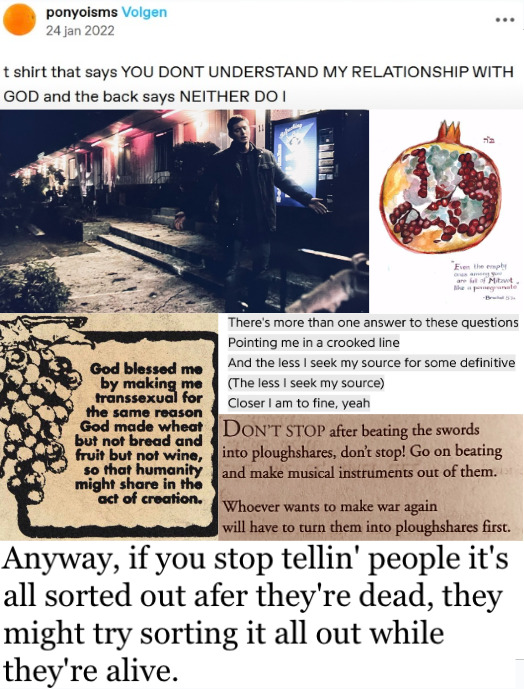

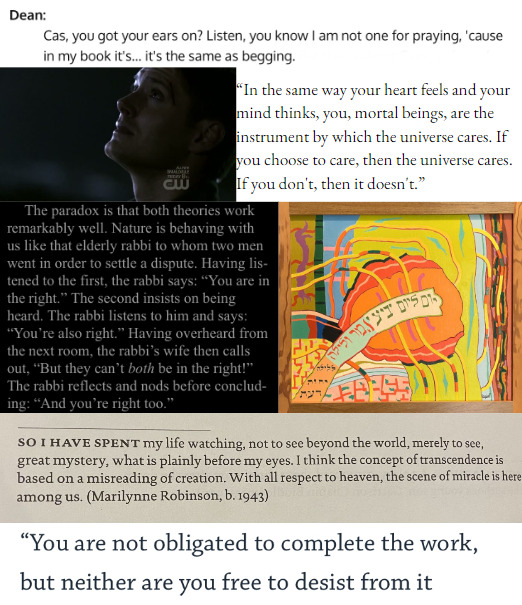
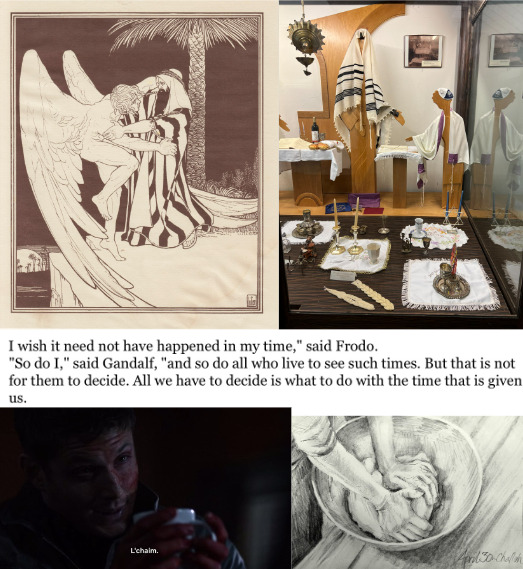
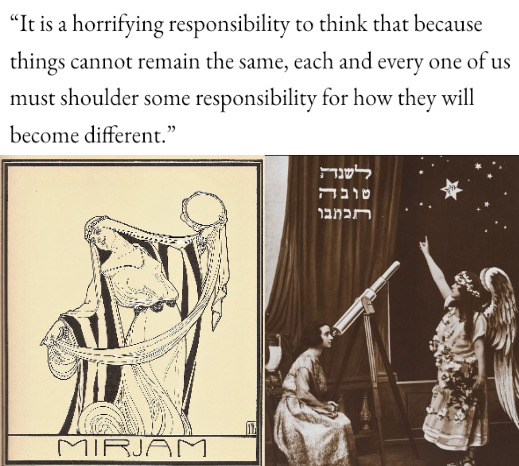
@ponyoisms // Supernatural 4x18 - "The Monster at the End of This Book" // quote by Julian K. Jarboe // Pomegranate Jews, by Esther Rosen // "Closer to Fine" by the Indigo Girls // poem by Yehuda Amichai (taken from the "Mishkan T'filah for Travelers: A Reform Siddur") // "Good Omens: The Nice and Accurate Prophecies of Agnes Nutter, Witch" by Neil Gaiman and Terry Pratchet // "Cleopatra and Frankenstein" by Coco Mellors // "The Naval Treaty" by Sir Arthur Conan Doyle // photo of La Piccola Gerusalemme, taken by my parents // "JEWISH LESBIANS" Gay Freedom Day Parade, San Francisco, California c. 1978 // "The Two Towers" directed by Peter Jackson // YEHUDIT, by Pinchas EL Segal // Mi Chamochah (taken from the "Mishkan T'filah for Travelers: A Reform Siddur") // Supernatural 8x16 - "Remember the Titans" // Supernatural 5x14 - "My Bloody Valentine" // Fantasy High 1x17 - "Prompocalypse Pt. 2" // "Seven Brief Lessons on Physics" by Carlo Rovelli // "K.-4-1976," by Peter Krasnow // "The Death of Adam: Essays on Modern Thought" by Marilynne Robinson // Pirkei Avot, quote by Rabbi Tarfon // Jacob Wrestling With The Angel, by Ephraim Moses Lilien // photo of Judaica from La Piccola Gerusalemme, taken by my parents // "The Fellowship of the Ring" by J.R.R. Tolkein // Supernatural 6x15 - "Live Free or Twihard" // Kneading Dough, by Katherine Hartel // Neverafter 1x17 - "The Last Wish" // Mirjam, by Ephraim Moses Lilien // "Rosh Hashanah Postcards." Hidden Treasures: Celebrating Jewish Archives in Britain
#really just a mishmash of things that make me feel closer to G-d#idk if anyone else will relate#but this was important to me#webweave#webweaving#jewish#judaism#jumblr#jewish art#siddur#religion#spirituality#also like webweaves are my thing now#i’m making so so many#and i’m making it everyone’s problem
244 notes
·
View notes
Text
🧵 𝐓𝐡𝐞 𝐁𝐢𝐠𝐠𝐞𝐬𝐭 𝐇𝐢𝐣𝐚𝐜𝐤𝐢𝐧𝐠 𝐢𝐧 𝐇𝐢𝐬𝐭𝐨𝐫𝐲: 𝐓𝐡𝐞 𝐒𝐭𝐨𝐥𝐞𝐧 𝐒𝐭𝐨𝐫𝐲 𝐨𝐟 𝐭𝐡𝐞 𝐉𝐞𝐰𝐬 𝐚𝐧𝐝 𝐉𝐞𝐫𝐮𝐬𝐚𝐥𝐞𝐦.
Thread: Before we dive in, let’s address a critical issue: There are some people around the world who perceive Jerusalem as an Arab area, including the ICJ, with some even advocating for it to be handed over to the Palestinians as the capital of their prospective terror state. This view overlooks the profound and unbroken Jewish connection to Jerusalem. Let’s review how Jerusalem is intrinsically Jewish and how its history has been hijacked and rewritten.
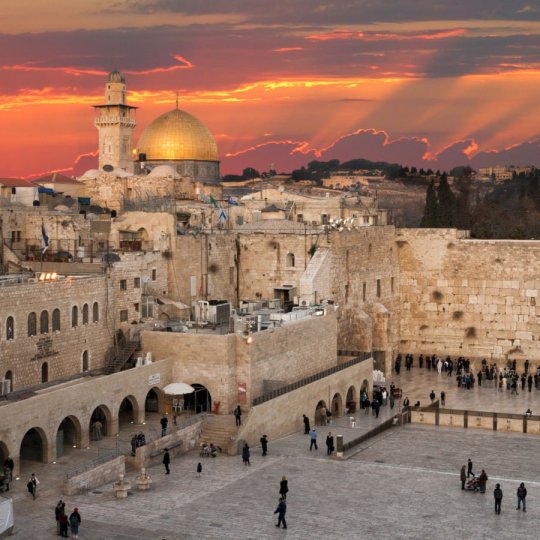
1/ 🌟 Jerusalem: The Eternal Capital of the Jewish People 🌟
Jerusalem has been the heart and soul of the Jewish people for over 3,500 years. Despite countless challenges and adversities, the Jewish presence in Jerusalem has remained unbroken, underscoring a deep-rooted and unwavering connection to this sacred city. From the days of Joshua and King David to the modern era, Jerusalem has been a constant in Jewish life, culture, and religion, symbolizing the enduring spirit and resilience of the Jewish people.
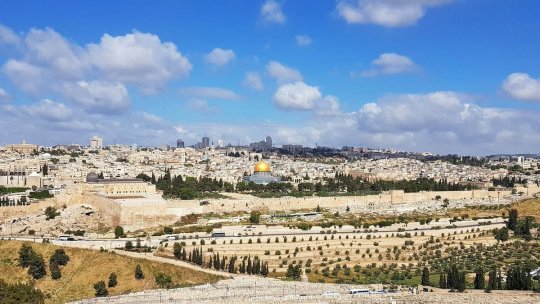
2/ 🕰️ Ancient Beginnings 🕰️
The history of Jews in Jerusalem dates back to ancient times, even before King David. Joshua, the biblical leader who succeeded Moses, conquered the land of Israel, including Jerusalem, around the 13th century BCE. This marked the beginning of a significant Jewish presence in the city. Later, King David established Jerusalem as the capital of the Jewish nation around 1000 BCE. This monumental decision solidified Jerusalem’s status as not just a political center but also a spiritual and cultural heart for Jews. His son, King Solomon, built the First Temple, making Jerusalem the focal point of Jewish worship and pilgrimage. The Temple served as the epicenter of Jewish religious life, drawing Jews from all corners of the land to partake in rituals and festivals, thus embedding Jerusalem deeply in Jewish identity.
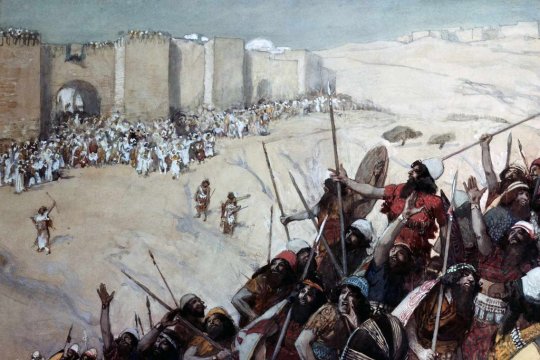
3/ 📜 Exile and Return 📜
Even after the destruction of the First Temple by the Babylonians in 586 BCE, the Jewish connection to Jerusalem did not wane. Jews returned to rebuild and renew their bond with the city, demonstrating their resilience and unyielding faith. The completion of the Second Temple in 516 BCE was a significant event, symbolizing a new era of Jewish religious and communal life. Despite subsequent invasions and occupations, the Jewish people continuously sought to restore and maintain their presence in Jerusalem, highlighting their enduring attachment to the city.
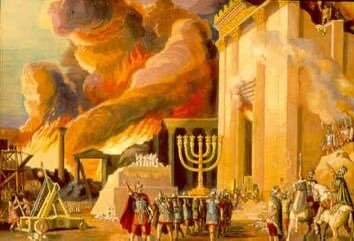
4/ 🏛️ Roman Destruction and Diaspora 🏛️
The Roman destruction of the Second Temple in 70 CE marked a profound moment of loss for the Jewish people, yet their connection to Jerusalem endured. Even as Jews were scattered across the globe in the ensuing diaspora, Jerusalem remained at the core of Jewish religious life and longing. Daily prayers, rituals, and cultural practices consistently oriented towards Jerusalem, preserving its significance in Jewish consciousness. Throughout centuries of dispersion, Jews always yearned for their return to Jerusalem, keeping the city’s memory alive in their hearts and minds.
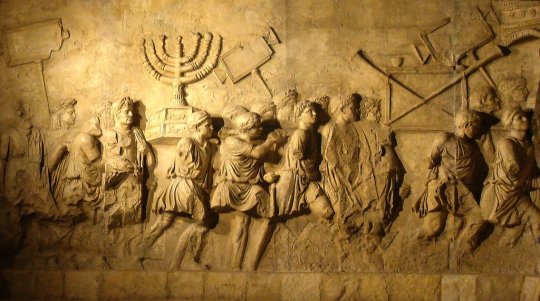
5/ 🌍 Medieval and Ottoman Eras🌍
Throughout the Middle Ages and the Ottoman rule, Jewish communities in Jerusalem faced periods of hardship and revival. Despite various conquerors and shifting political landscapes, Jews never abandoned their spiritual and historical ties to the city. During the Ottoman era, from 1517 to 1917, Jewish life in Jerusalem experienced significant changes. The Ottomans, recognizing the historical Jewish connection to the land, allowed Jewish refugees from Spain and other regions to settle in the city. This period saw a revival of Jewish communal life, with the establishment of new synagogues, schools, and community institutions, further cementing the continuous Jewish presence in Jerusalem.
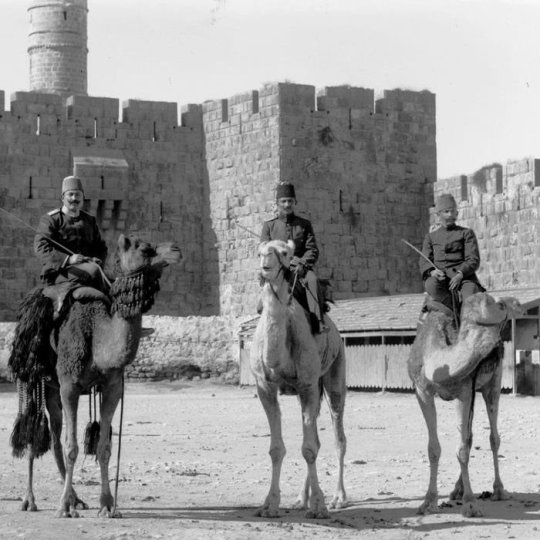
6/ ✡️ The Jewish Quarter ✡️
The Jewish Quarter of the Old City of Jerusalem has been a vibrant center of Jewish life for centuries, a microcosm of the broader Jewish experience in the city. Its synagogues, schools, and homes are living monuments to the continuous Jewish presence and the community’s resilience in the face of adversity. Over the centuries, despite periods of destruction and renewal, the Jewish Quarter has remained a focal point of Jewish cultural and religious life, embodying the steadfast connection of Jews to their ancient capital.
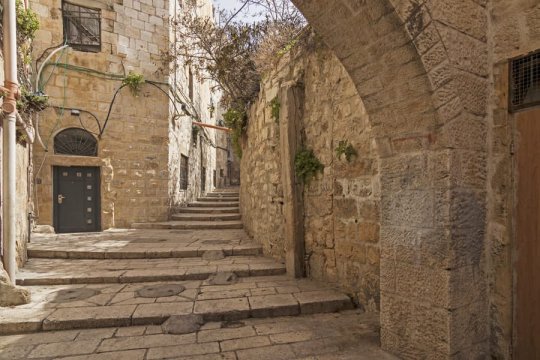
7/ 🚫 Temple Mount Restrictions 🚫
Today, Jews face restrictions on visiting the Temple Mount, the holiest site in Judaism. Control by Muslim authorities has prevented Jews from freely accessing the area, highlighting ongoing tensions and challenges. The Temple Mount, where the First and Second Temples once stood, remains a profoundly significant site for Jews. However, the complex political and religious dynamics have resulted in limitations on Jewish worship and presence, reflecting broader issues of religious freedom and historical rights.

8/ 🕌 Historical Hijacking 🕌
The Temple Mount, where the First and Second Temples once stood, has been at the center of a significant historical hijacking. Today, many around the world view it primarily as a Muslim site, overshadowing its profound Jewish significance. Despite its deep roots in Jewish history, the site has been rebranded, with many now referring to it exclusively by its Islamic name, Al-Haram Al-Sharif. The reality is that Jerusalem holds a marginal place in Islamic tradition compared to its central role in Judaism. The Quran does not mention Jerusalem, and its association with Islam primarily stems from later historical developments. This rebranding diminishes the Jewish connection to the Temple Mount, a place where Jews have prayed and yearned for thousands of years. The ongoing restrictions on Jewish access and worship at this sacred site underscore the broader struggle for recognition of Jerusalem’s true historical and religious narrative.

9/ 📜 Jewish Presence Through the Ages 📜
Over the last 1,800 years, Jews have consistently lived in Jerusalem and throughout Israel, even under various foreign rulers. For example, in the 9th century, Jewish scholar Saadia Gaon wrote extensively about Jewish life in Jerusalem. In the 11th century, Spanish-Jewish traveler Benjamin of Tudela documented thriving Jewish communities in the city. By the 16th century, under Ottoman rule, Jerusalem saw a revival of Jewish life with the arrival of Jewish refugees from Spain. The 19th century witnessed the establishment of new Jewish neighborhoods outside the Old City walls, symbolizing the growth and resilience of the Jewish population. These examples illustrate that, despite hardships and displacements, Jews have maintained a continuous presence in Jerusalem, contributing to its cultural and religious landscape.

10/ 🕊️ Jerusalem Today 🕊️
Today, Jerusalem stands as a thriving city, embodying the spirit and resilience of the Jewish people. Despite ongoing challenges and political complexities, the eternal bond between Jews and Jerusalem remains unbreakable, reflecting millennia of history, faith, and determination. Jerusalem continues to be a center of Jewish religious, cultural, and political life, symbolizing the unyielding connection of the Jewish people to their ancient capital. The city’s vibrant life and continuous development are testaments to the enduring spirit of the Jewish community and their unwavering commitment to Jerusalem.
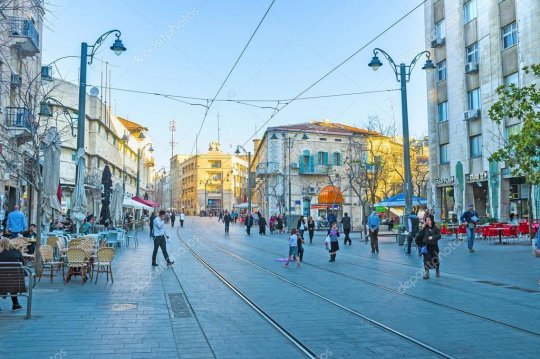
📖 Conclusion 📖
Jerusalem is not just a city; it is the heart of Jewish identity and heritage. For 3,500 years, Jews have lived, prayed, and thrived in Jerusalem. Despite numerous challenges and adversities, their connection remains steadfast, a testament to the enduring spirit of the Jewish people. The history of Jerusalem is a story of resilience, faith, and an unbreakable bond that has withstood the test of time. Today, as we honor this profound connection, we also look towards a future where Jerusalem continues to be a symbol of hope, unity, and peace for all who hold it dear.
𝐘𝐨𝐮 𝐜𝐚𝐧'𝐭 𝐫𝐞𝐦𝐨𝐯𝐞 𝐉𝐞𝐫𝐮𝐬𝐚𝐥𝐞𝐦 𝐟𝐫𝐨𝐦 𝐉𝐮𝐝𝐚𝐢𝐬𝐦 𝐚𝐧𝐝 𝐲𝐨𝐮 𝐜𝐚𝐧'𝐭 𝐫𝐞𝐦𝐨𝐯𝐞 𝐉𝐮𝐝𝐚𝐢𝐬𝐦 𝐟𝐫𝐨𝐦 𝐉𝐞𝐫𝐮𝐬𝐚𝐥𝐞𝐦.
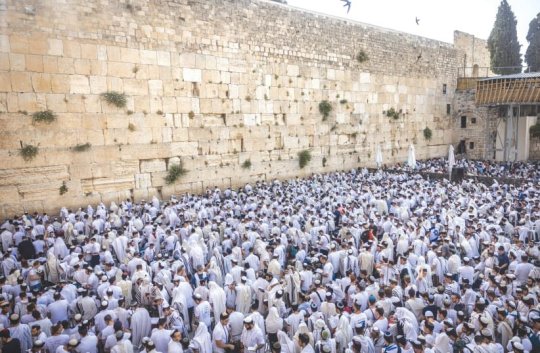

110 notes
·
View notes
Photo
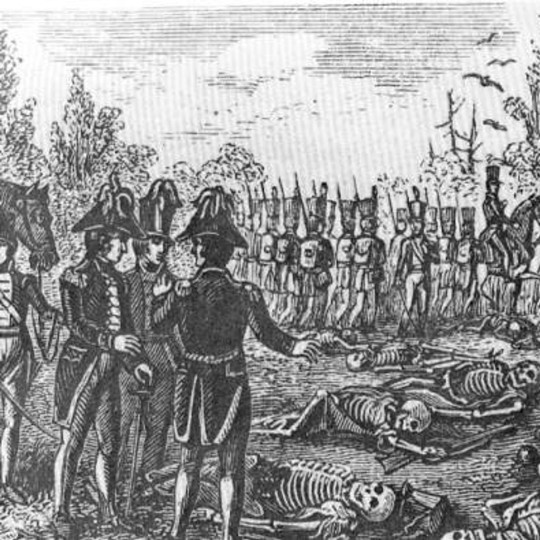
J. R. Giddings' Account of the Dade Massacre of the Second Seminole War
The Dade Massacre (also given as the Dade Battle, 28 December 1835) was the opening engagement of the Second Seminole War (1835-1842) between Euro-American forces and those of the Seminole, Black Seminole, and runaway slaves who had found freedom among the Native Americans of Florida. Of the 110 men of Dade's command, 108 were killed.
Dade Massacre Site Illustration
Unknown Artist (Public Domain)
Major Francis L. Dade (l. 1792-1835) was ordered by General Duncan Lamont Clinch (l. 1787-1849) to march his men from Fort Brooke to reinforce the garrison at Fort King and chose a slave named Louis Pacheco, owned by one Antonio Pacheco of a nearby plantation, as his guide. Louis, who secretly had close ties to the Exiles (runaway slaves from the Carolinas, Georgia, and other slave-holding states), Black Seminoles, and Seminoles, alerted them to the route Dade would take to Fort King and suggested the perfect place for an ambush.
Louis' plan worked as envisioned and almost the entire command, including Dade, was killed in the attack. The casualties for the Seminole alliance were three killed and five wounded. The Dade Massacre and the ensuing Second Seminole War were a direct result of the Indian Removal Act of 1830 and the common practice of slave-hunters from the United States kidnapping former slaves, Black Seminoles, and freedmen for enslavement on US plantations.
There was no formal victory declared at the end of the Second Seminole War, and no treaties were signed. Many of the Seminole, Black Seminole, and former slaves were able to negotiate relocation to Indian Territory (modern-day Oklahoma), while others were forcibly removed, and still others never surrendered and remained in Florida.
One of the most detailed accounts of the Dade Massacre comes from the famous abolitionist Joshua Reed Giddings (l. 1795-1864) of the US House of Representatives in his book The Exiles of Florida: or, The Crimes Committed by Our Government against the Maroons, who Fled from South Carolina and other Slave States, Seeking Protection under Spanish Laws, published in 1858. Giddings' account is based on an earlier history of Florida, which drew on interviews with members of the Seminole forces that ambushed Dade in December 1835.
Joshua Reed Giddings
Matthew Brady (Public Domain)
Spanish Florida, Tensions, & Second Seminole War
The region that became Florida was claimed by the Spanish after Juan Ponce de León landed there in April 1513. Between 1539 and 1559, Spanish settlements developed, displacing the indigenous peoples who included the Creek and the Pensacola nations, but trade was established, and Spaniards married Native Americans of various nations, and, in time, also former slaves who had escaped from bondage in the Thirteen Colonies.
In 1738, Fort Mose, near St. Augustine, was established and garrisoned by escaped slaves who were granted freedom and citizenship in exchange for their defense of the region against encroachments by the British colonists to the north. Fort Mose became the first legally recognized free Black settlement in North America.
Spain encouraged slaves in the Thirteen Colonies to flee to Florida, and many did so, along with an influx of Chickasaw, Choctaw, Muscogee Creek, and Yamasee citizens, some of whom broke off from the larger Creek bands to settle on their own, and these became known as the Seminole, whose name may be derived from the Creek for "runaway" or "outcast." Some Seminole intermarried with former slaves and established their own communities of Black Seminoles. These various groups lived and traded with each other until Spain lost Florida to the British in 1763 after the French and Indian War (1754-1763). The British then established themselves in the region and encouraged their citizens to settle there.
A Seminole Woman
George Catlin (Public Domain)
The Seminole sided with the British during the American Revolutionary War (1775-1783) and, afterwards, Spain was able to retake Florida, and it became a haven for runaway slaves and Native Americans fleeing Euro-American persecution. General Andrew Jackson led troops into Florida to break up these enclaves of African Americans and Native Americans in the First Seminole War (1816-1819). After Jackson became President of the United States, he issued the Indian Removal Act of 1830 to forcibly relocate the Seminole (as well as many other Native peoples of North America) to Indian Territory west of the Mississippi River. Pressure on the Seminole to comply with this led to the Second Seminole War, which also encouraged one of the largest slave uprisings in US history as the Seminole resistance inspired slaves on plantations in the Carolinas and Georgia to fire the fields and flee to Florida.
The event that set the Second Seminole War in motion (though not the cause of the conflict) was the Dade Massacre of 1835. To the Seminole, Black Seminole, and free Blacks of Florida, the Dade Massacre was a great victory, and leaders like Chief Osceola of the Seminole (l. 1804-1838) and John Horse of the Black Seminole (also known as Jean Caballao, l. c. 1812-1882) looked forward to many more. To the US authorities, however, the Dade Massacre was simply proof that the Native Americans had to be removed from Florida along with any of their allies. Osceola died in captivity in 1838, but John Horse was able to lead his people to Oklahoma and then, when US authorities refused to honor their agreement, on to Mexico.
Major Francis Dade's Death
Jesse Olney (Public Domain)
Continue reading...
30 notes
·
View notes
Note
I am glad to know the death of the Egyptian kids isn’t celebrated
But taking the story literally it feels like it could’ve been easier for g-d to just kill the pharaoh and his army, don’t murder their kids as, like, revenge for for them killing kids,
From a storytelling perspective by today’s standards it seems like an odd choice, I mean I get the symbolism and all that but if he’s all powerful you’d think he’d have more options lol.
don't come to my inbox with your atheist superiority complex. "why didn't he just kill them from the start if he's all powerful lol" for fuck's sake, just say you think we're sinners who believe in a false g-d and move on. and why are you looking at a biblical story from a modern storytelling perspective in the first place? it's thousands of years old, not Harry Potter.
this was a last resort, G-d didn't just wake up one day and decided "yo Moses I'm gonna kill all their birstborns" "why" "it's funny", it was a display of g-ds strength as a series of warnings to the pharaoh, "let my people go or face the wrath of our g-d, you don't want to know what happens when he counts to 10". killing their firstborns wasn't revenge for the murdered children of the Hebrews.
you can argue all you want about what should have happened in the story, but that won't change what the story itself. what we can do is learn the story and interpret the meaning and symbolism.
and we both know that if the story was just "g-d killed the pharaoh and his army and in the chaos the Hebrews escaped" you'd be here whining "why didn't they try peace first? 😭 why did they have to kill them when they could have tried to ask to leave? 🥺🥺🥺".
164 notes
·
View notes
Text
I'm actually sick and tired of Christians pretending that their religion is so special and clean and sacred and shit, it's literally the most primitive thing you can imagine! I'm deeply studying the New testament, I've already read it but I'm going through it again as an atheist, and it's insane how many blind eyes Christians would turn to this, (I was a Christian so I turned a blind eye too at some point) there's literally every sin and atrocity you can think of, there's so much blood involved in animal sacrifice, humans sacrifice, constant atonement, a God who says he loves his people but constantly punishes them or withholds peace from them, it's barbaric and manipulative it's insane! Don't even get me started on the treatment of women! Livestock were treated better than women in many cases especially when God's laying down rules for Moses's people, it's a barbaric religion for a barbaric time and I'm so sick of the modern day Christian whitewashing it into some clean and tidy thing that it never was! CHRISTIANS READ YOUR BIBLE PLEASE! 🙏
#healing#ex christian#deconstruction#atheist#thoughts#vent post#anti christianity#fuck religion#its evil#critical thinking
21 notes
·
View notes